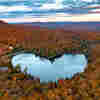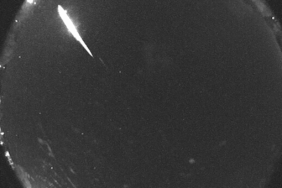If, you, too, have been intensely concentrating on the presidential election, you may be ready for a shift of focus. Vanishing Treasures, an extraordinary book by Katherine Rundell (originally published under the title The Golden Mole in the UK) lifts readers out of the here and now and invites us to train our eyes on wider horizons.
Rundell is a publishing phenom. Her 2013 middle-grade children’s book Rooftoppers drew inspiration from her own adventures as an undergraduate at Oxford, where she climbed brick walls and scaled drainpipes to take in the views of that “city of dreaming spires” from on high. More recently, Rundell has written Super-Infinite, an acclaimed biography of the metaphysical poet John Donne, as well as a bestselling fantasy novel, called Impossible Creatures.
In short, Rundell is something of a Renaissance woman who writes with the elegance and erudition that distinguished that era. Vanishing Treasures is a bestiary, a collection of creatures, both odd and mundane — all of whom are more astonishing than you might expect; all of whom, as Rundell tells us are “endangered or [contain] a subspecies that is endangered — because there is almost no creature on the planet, now, for which that is not the case.”
Rundell begins her book with an epigraph from an author whose reputation is itself approaching extinction: the British essayist and mystery writer, G.K. Chesterton: “The world will never starve for want of wonders; but only for want of wonder.”
What follows are 23 very short essays on creatures ranging from the wombat to the spider; the raccoon to the tuna. For anyone whose capacity for wonder could use a jumpstart, Rundell’s essays are essential reading. Listen, for instance, to these sentences from the opening paragraph of her essay on the swift — a common creature so named because it’s the fastest bird in flight:
The swift is sky-suited like no other bird. Weighing less than a hen’s egg, with wings like a scythe and a tail like a fork, it eats and sleeps on the wing. … [Swifts] mate in brief mid-sky collisions, the only birds to do so, and to wash they hunt down clouds and fly through gentle rain, slowly, wings outstretched.
As you can hear, Rundell’s essays are no mere Wikipedia entries about the natural world; rather, they’re deeply-felt, lyrical, often witty, and occasionally grisly evocations of the living marvels she’s surveying. Her essay on “The Hermit Crab,” for instance, begins with a jolt: “It was, perhaps, a hermit crab that ate Amelia Earhart.”
Rundell goes on to explain: It seems that the uninhabited island in the Western Pacific where Earhart’s plane may have gone down and where 13 (but, only 13) human bones were discovered that matched Earhart’s size is to this day also “home to a colony of coconut hermit crabs: the world’s largest land crab. … The oldest [crabs] live to more than a hundred, and grow to be up to 40 inches across: too large to fit in a bathtub, exactly the right size for a nightmare.”
The interconnectedness, both savage and beautiful, of the animal and human world is the message thrumming through these essays. Earhart’s possible fate notwithstanding, it’s, of course, nonhuman creatures who suffer most from their contact with us. “The greatest lie that humans ever told is that the Earth is ours, and at our disposal. … We must cease from telling that lie because the world is so rare, and so wildly fine.”
Vanishing Treasures makes readers see, really see, some of the miraculous creatures we still share this fragile world with. Like any wise environmentalist, Rundell also leavens terror with possibility. I leave you, then, with Rundell’s tribute to the Greenland shark, “the planet’s oldest vertebrate”; an animal who can live over 500 years. Rundell says:
… I find the very idea of them hopeful. They will see us pass through whichever spinning chaos we may currently be living through, … and they will live through the currently unimagined things that will come after that: the transformations, revelations, the possible liberations. That is their beauty and it’s breathtaking: they go on. These slow, odorous, half-blind creatures are perhaps the closest thing to eternal this planet has to offer.









Yorumlar kapalı.